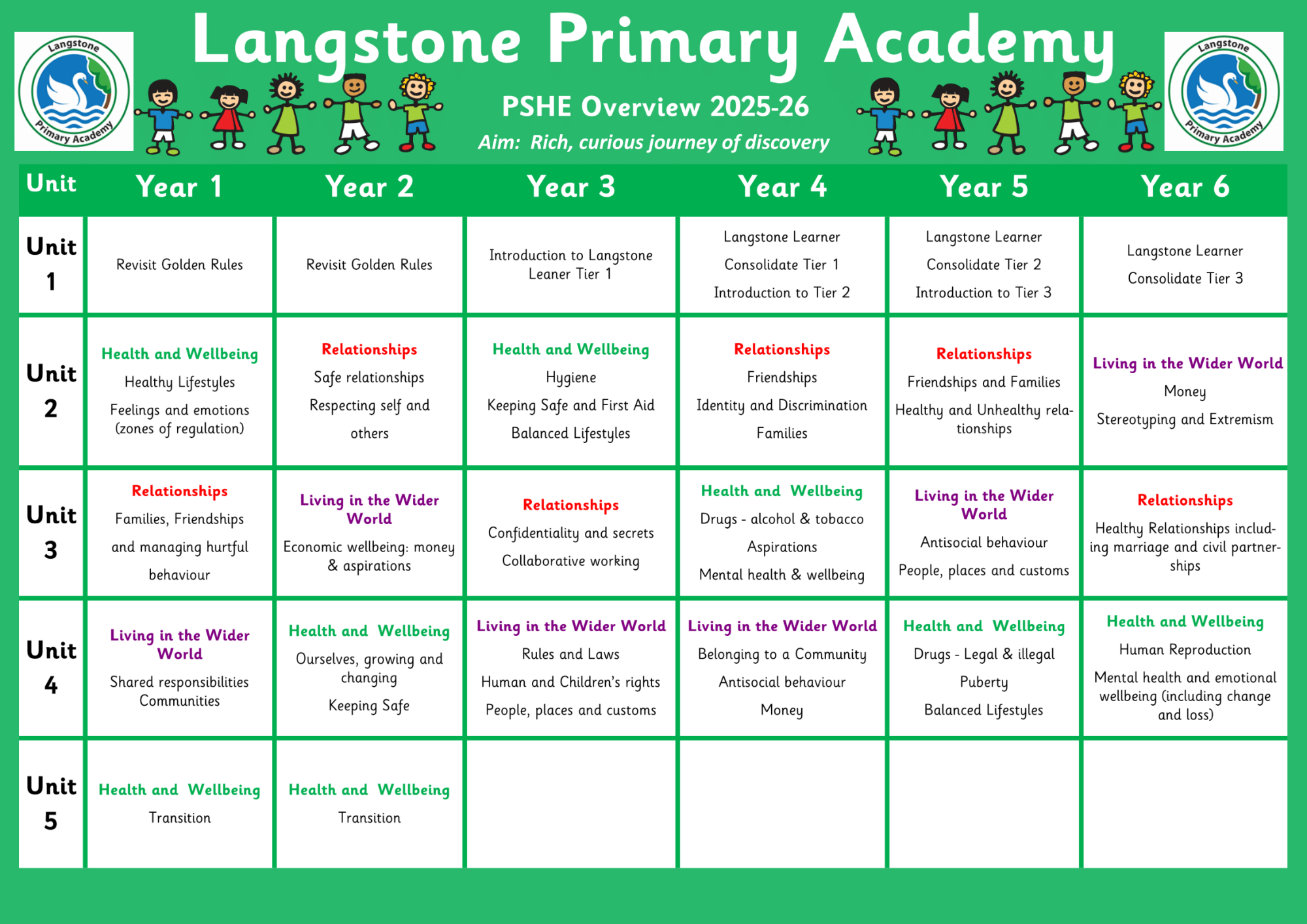Think, Learn, Be Excellent Together
Think, Learn, Be Excellent Together
Think, Learn, Be Excellent Together
Think, Learn, Be Excellent Together
PSHE
Intent
Our vision is to provide pupils with opportunities for them to develop as confident, self-assured learners who are proud of their achievements and of their school. Our PSHE curriculum allows pupils to develop the knowledge, skills and attributes they need to keep themselves healthy and safe, to value British Citizenship and prepare for life and work in modern Britain.
In order to achieve this, we will:
-
Embed PSHE themes across the curriculum because these skills are fundamental in supporting the spiritual, moral, cultural, mental and physical development of our pupils.
-
Use real life examples and experiences because children will be able to understand the importance and value of the learning if they can relate to it.
-
Plan and implement a curriculum, tailored specifically to our community because it is important for children to have a sense of belonging.
-
Understand the Golden rules and Behaviours for Learning because it is essential that our pupils know their actions and their behaviour has consequences.
By the end of EYFS, children will:
-
lead healthy and happy lives.
-
develop a positive sense of self.
-
Set themselves simple goals.
-
Have the confidence in their own abilities and to be a reflective, resilient problem solver.
-
understand their own feelings and those of others.
By the end of KS1, children will:
-
explore different types of relationships including how to build and keep healthy relationships.
-
understand how to stay financially secure and respect all members of society whilst living in the wider world.
-
know about their health and wellbeing including how it might change overtime; how to look after themselves and how to stay safe.
By the end of KS2, children will:
-
will be able to explain how to make informed decisions to live a healthy lifestyle and how to manage risks.
-
understand human reproduction.
-
recognise the emotional and behavioural aspects of their financial choices.
-
explore their role in the wider world and begin to understand their rights and responsibilities as a member of society.
-
recognise safe and unsafe relationships and have an acceptance of a wide range of family units.

